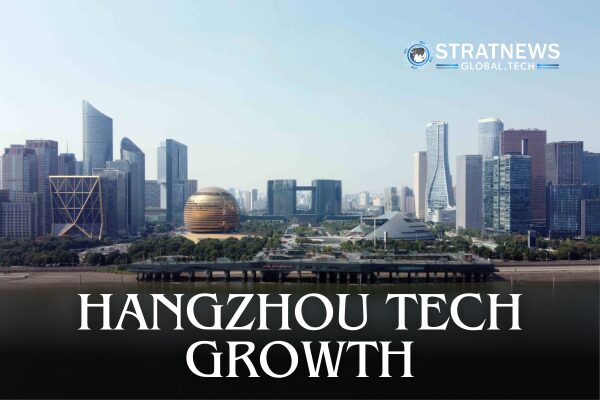Hangzhou Strengthens Position as a Tech and AI Innovation Hub
Hangzhou, the eastern Chinese tech city home to e-commerce giant Alibaba and rising AI leader DeepSeek, has been accelerating its sci-tech sector through innovation-driven initiatives. As a pioneer in robotics and artificial intelligence, Hangzhou has become a major hub for technological advancements.
Advancing AI and Cutting-Edge Technologies
The city has established the Zhejiang Lab, focusing on groundbreaking projects such as brain-inspired computing, brain-computer integration, advanced chip development, and open-source AI platforms. These efforts place Hangzhou at the forefront of China’s AI and digital transformation.
To attract more companies, Hangzhou has introduced business-friendly policies that improve its startup ecosystem. Recent data shows that, since the beginning of the year, the city has registered an average of 280 new businesses daily, granted over 70 patents, and attracted nearly 17 million yuan in tech startup investments.
The Vision Behind Hangzhou’s Digital Transformation
Hangzhou’s digital economy can be traced back to 2003, when Chinese President Xi Jinping, then Zhejiang’s Communist Party Secretary, introduced the “Digital Zhejiang” strategy. At the time, the concept was ahead of its era, with fewer than 2% of households in Hangzhou owning internet-connected computers.
Despite early skepticism, Xi’s vision for data-driven growth has shaped Hangzhou into a digital powerhouse. His repeated visits to Zhejiang have emphasized the importance of industrial digitalization, encouraging local businesses and government bodies to embrace technological advancements.
Driving AI Integration and Business Growth
Hangzhou plans to launch an “AI+” initiative, promoting AI applications across various industries. It will also introduce a “use first, pay later” reform, allowing universities and research institutions to license technological innovations to SMEs before requiring payment.
The city’s thriving business environment has attracted major tech companies, including Game Science, the studio behind the hit game Black Myth: Wukong. CEO Feng Ji highlighted Hangzhou’s ability to provide stability for entrepreneurs, fostering long-term growth despite industry uncertainties.
Strengthening Hangzhou’s Innovation Ecosystem
To sustain its position as a tech leader, Hangzhou is investing in emerging industries such as general AI and humanoid robots. The city has dedicated 15% of its industrial policy funds to supporting next-generation technologies.
Additionally, Hangzhou continues to nurture university-led innovation, with businesses taking the lead in 80% of municipal-level science and technology projects. These efforts align with Zhejiang Province’s broader goal of integrating scientific and industrial innovation, reinforcing Hangzhou’s reputation as a hub for entrepreneurship and high-tech development.
Deputy Mayor Fang Yi emphasized that Hangzhou’s growth has been guided by President Xi’s vision, with ongoing efforts to remove barriers between technological research and industrial application, making the city a thriving center for innovation.
With inputs from Reuters


